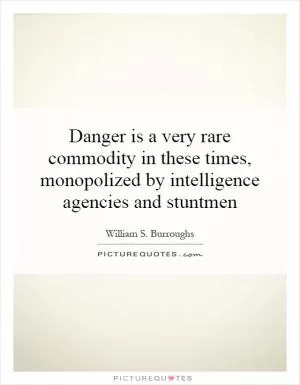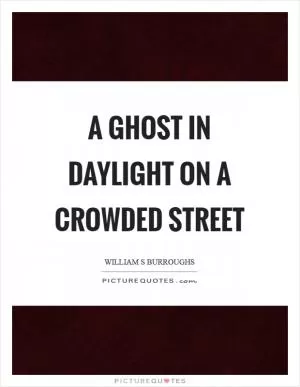I am not a person and I am not an animal. There is something I am here for something I must do before I can go

I am not a person and I am not an animal. There is something I am here for something I must do before I can go
William S. Burroughs, the iconic Beat Generation writer, was known for his avant-garde and experimental writing style that often delved into themes of addiction, control, and the nature of existence. In his work, Burroughs often explored the idea of identity and the blurred lines between human and animal, reality and illusion.The quote, “I am not a person and I am not an animal. There is something I am here for something I must do before I can go,” encapsulates the existential angst and search for purpose that permeates much of Burroughs’ writing. In his novel "Naked Lunch," for example, the protagonist William Lee grapples with his own identity and struggles to find meaning in a world that seems chaotic and devoid of purpose.
Burroughs’ characters often exist on the fringes of society, engaging in drug-fueled escapades and grappling with their own inner demons. They are neither fully human nor fully animal, but rather exist in a liminal space between the two. This sense of otherness and alienation is a recurring theme in Burroughs’ work, reflecting his own struggles with addiction and his outsider status in the literary world.
The idea that there is something one must do before they can go suggests a sense of urgency and a quest for redemption or fulfillment. In Burroughs’ writing, this often takes the form of a search for control or agency in a world that seems determined to thwart one’s efforts. Whether it be through drug addiction, government surveillance, or the machinations of unseen forces, Burroughs’ characters are constantly struggling to assert their own agency and find meaning in a seemingly meaningless world.
Overall, the quote “I am not a person and I am not an animal. There is something I am here for something I must do before I can go” encapsulates the existential themes and sense of alienation that permeate much of William S. Burroughs’ work. It speaks to the search for identity, purpose, and agency in a world that often seems indifferent to our struggles and desires.












 Friendship Quotes
Friendship Quotes Love Quotes
Love Quotes Life Quotes
Life Quotes Funny Quotes
Funny Quotes Motivational Quotes
Motivational Quotes Inspirational Quotes
Inspirational Quotes